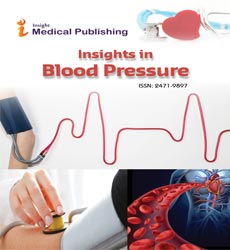Abstract
Complication Incidence and Management of Adult and Pediatric Moyamoya Disease after Bypass Surgeries
Background: Multiple literatures have shown that
extra-intracranial vascular direct bypass provides good
outcome for patients diagnosed as moyamoya disease
(MMD), but complications occurred frequently after
surgeries. This study aims to discuss the postoperative
complications, occurrence rate and postoperative
management of MMD patients who underwent
surgeries. Materials and Methods: We retrospectively
collected data of consecutive patients diagnosed with
MMD and then underwent combination surgery of
direct bypass and EDMS in our department between
Jan 2013 to Dec 2015. Postoperative complications
include acute brain infarction, intracranial bleeding
and CHS. All patients were strictly monitored to avoid
hypovolemia, low blood pressure and anemia after
surgeries. Edaravone was the main medicine used for
postoperative treatment. Results: Totally 368
consecutive patients (408 hemispheres) are included.
The most frequent complication was CHS-related
neurological deficits which were observed in 73
patients (19.8%). The most frequently occurred
deficits was aphasia (88.5%). There were more left
sided surgeries in the CHS plus brain infarction group
(76.9% vs. 49.7%, p0.05). Discussion: Incidence of
CHS is higher in left lateralization surgeries than right
lateralization, and aphasia is the most frequent CHS
symptom. Adult patients seem at higher risk for
postoperative hyper-perfusion than pediatric patients,
but not statistically significant in our study. It is
important to observe CHS correctly and timely for
neurosurgical nurses, in order to manage it properly.
Introduction Moyamoya disease (MMD) is a type of
cerebrovascular disease due to progressive stenosis to
occlusion of the internal carotid artery system with
compensatory hyperplasia of the basilar vascular
network. It is more common in eastern Asia with high
incidence of disability. Surgical revascularization like
bypass surgery is the main treatment, which can
e ÙÃÆââ¬Å¡ÃâÃâ ÙÃÆââ¬Å¡Ãâââ¬Â ectLvel\ improve cerebral blood perfusion. Multiple
literatures have shown that extra-intracranial vascular
direct bypass provides good outcome for patients
diagnosed as moyamoya disease (MMD) . In our
center, we usually prefer a combination surgery of
direct bypasss and Encephalo-Duro-Arterio-Myo-
Synangiosis (EDMS) to treat MMD. If a bypass fails
during surgery, we usually choose EDMS, i.e., indirect
bypass. Although bypass surgeries have been
improved sLJnLficantl\ since the first report, in
clinical practice, postoperative complications are
commonly seen, within which cerebral hyperperfusion
syndrome (CHS) most frequently occurred,
presenting with a variety of symptoms. It is important
to understand these complications and know how to
deal with them for neurosurgical nurses. ÐÃÆââ¬Å¡ÃâÃÂLs study
aims to discuss the postoperative complications,
occurrence rate and postoperative management of
MMD patients who underwent surgeries. Materials and
Methods In this study we retrospectively collected data
of consecutive patients diagnosed with moyamoya
This work is partly presented at 15th World Hematology & Immunology Congress December 05-06, 2018 Lisbon,Portugal
Extended Abstract
Vol. 5, Iss.1
2019
Insights in Blood Pressure
disease and then underwent combination surgery of
direct bypass and EDMS in department of
neurosurgery, Huashan hospital, between Jan 2013 to
Dec 2015. We reviewed paper and electronic chart
documentations from both nurses and doctors to
collect patient’s demographic data and other
information. Computed Tomography (CT), Magnetic
Resonance Imaging (MRI), Single-Photon Emission
Computed Tomography (SPECT), digital subtraction
angiography (DSA) reports from radiological and
neurosurgical department are also included in the
charts. Neurosurgeons in our department usually used
intraoperative indocyanine green (ICG) to confirm the
patency of the anastomosis. Postoperative observation
by neurosurgical nurses includes patients’ vital signs,
consciousness scoring, and signs of neurological
deficLts Journal of Gerontology & Geriatric Research
ISSN: 2167-7182 Journal of Gerontology & Geriatric
Research Zhang et al., J GerontolGeriatr Res 2019, 8:2
DOI: 10.4172/2167-7182.1000502 Research Article
Open Access J GerontolGeriatr Res, an open access
journal ISSN:2167-7182 Volume 8 • Issue 2 • 1000
Keywords:
Moyamoya disease; STA-MCA bypass; Encephalo-
DuroArterio-Myo-Synangiosis (EDMS); Postoperative
complications; Postoperative management
Author(s):
Zhang Q1 , Feng R2,3, Zhang X2,3, Jiang H2,3, Zhu Y1 , Yingying G1 , Xu C1 , Yuxiang G2,3 and Yibing S1*
Abstract | PDF
Share this

Google scholar citation report
Citations : 71
Insights in Blood Pressure received 71 citations as per google scholar report
Abstracted/Indexed in
- Google Scholar
- China National Knowledge Infrastructure (CNKI)
- Directory of Research Journal Indexing (DRJI)
- WorldCat
- Secret Search Engine Labs
Open Access Journals
- Aquaculture & Veterinary Science
- Chemistry & Chemical Sciences
- Clinical Sciences
- Engineering
- General Science
- Genetics & Molecular Biology
- Health Care & Nursing
- Immunology & Microbiology
- Materials Science
- Mathematics & Physics
- Medical Sciences
- Neurology & Psychiatry
- Oncology & Cancer Science
- Pharmaceutical Sciences
